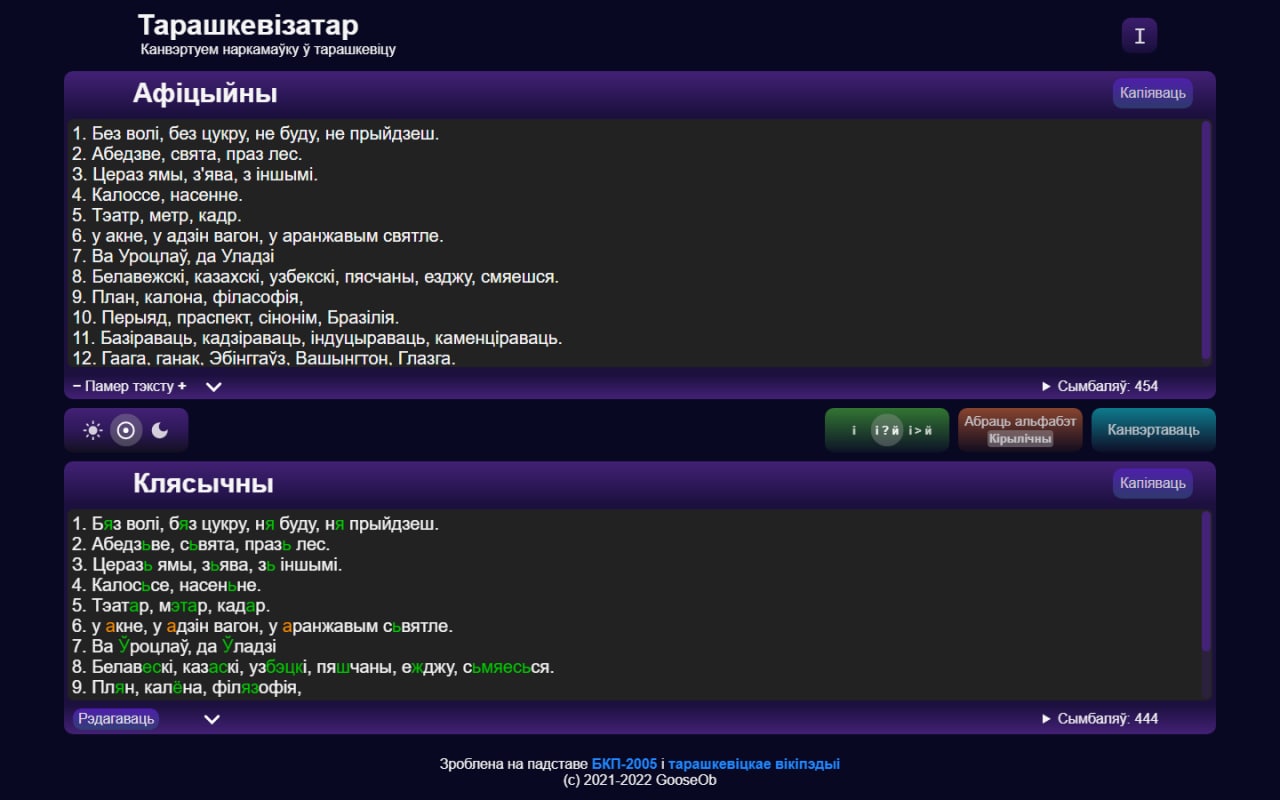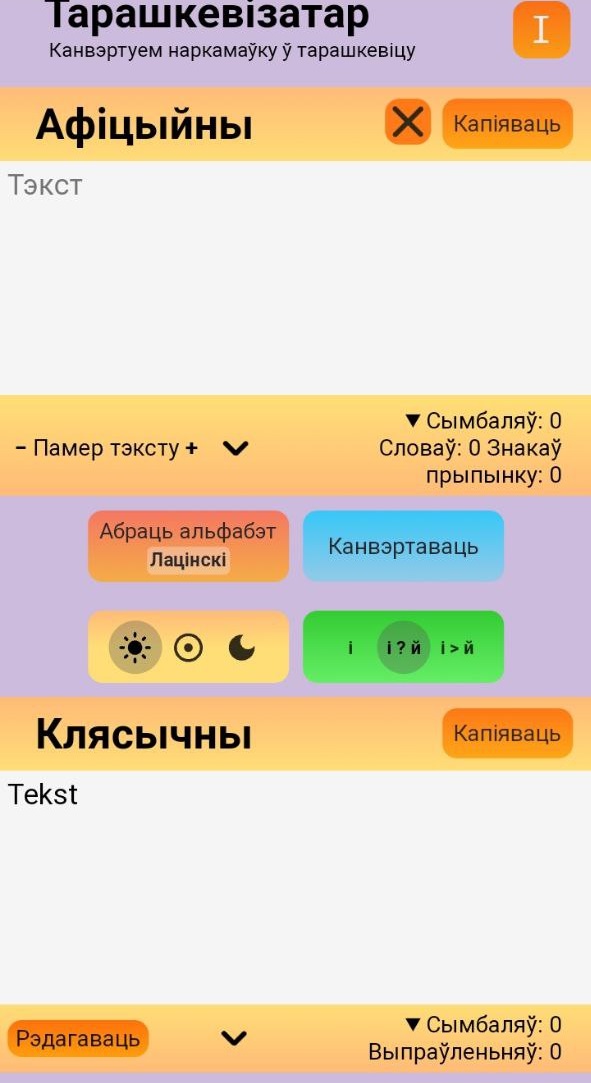Converter of belarusian orthography. From the modern academic to the classic
Content
There is the text box for a text to convert and initial content in it. We can use the special constructions to avoid processing the text we want to keep as it was. It can be useful if you want to convert xml, tags won’t be converted unless you change it.
At the bottom of input card are following buttons:
- copy
- clear
- get prompt - gives prompts about using the app and the last update date
Output card:
- copy
- show/hide settings
- edit the result
At the settings we can:
- choose alphabet: cyrillic / latin / arabic / greek
- choose replacing i by j: never / random / always
- upload text and then download converted one
- choose initial variable g/h letter g or h (only for cyrillic)
- go to my Telegram profile or
issues
In the header we have two buttons for switching theme.
History
I came across the baltoslav taraškievizer but realized it doesn’t work well with many words. I decided to make my own taraškievizer, started looking for any sources of words for start and found this script on the wikipedia, it became the base of my project dictionary.
There were 3 files of 
The project was created in vanilla js with 



My friend suggested me to change the UI of the project and I did it, the old UI is above.
He also created the Nest.js API for the taraskevizatar later. I and wanted to
avoid duplication of the dictionary file in the API and the frontend folders. It
required using 


Then I thought I’d make the possibility of building the taraskevizatar frontend
that interacts with this API. I added alias @api for imports and if the build
is in the api mode, @api imports fetch function instead of function with
taraskevization logic on frontend.
After a while, someone asked me in issues on 





Then, I set up CI/CD with 


I also migrated the app from 




 ->
-> 
 ->
->  ->
-> 

